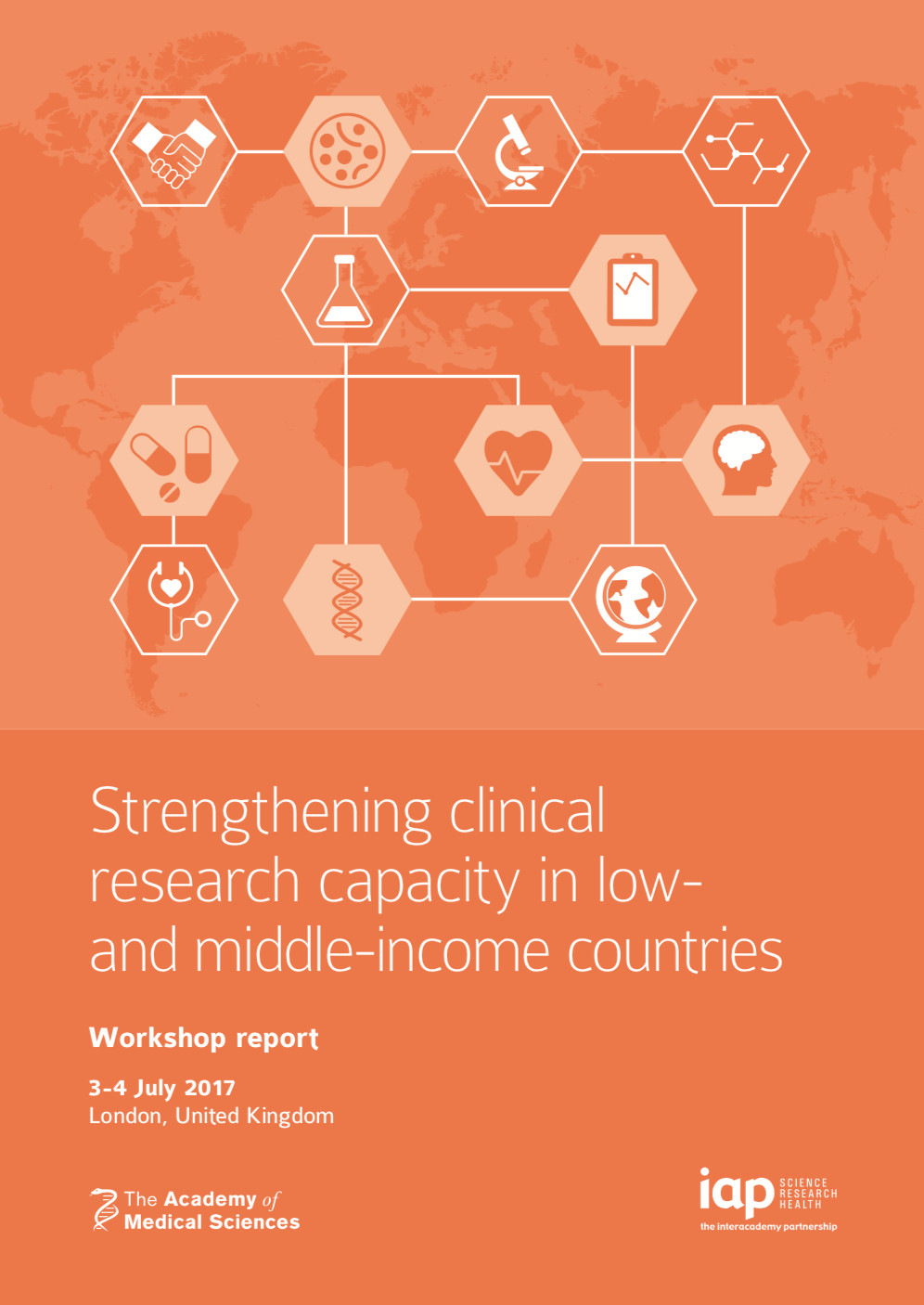A new report by the Academy of Medical Sciences and InterAcademy Partnership for Health identifies a number of key gaps and barriers in clinical research capacity across the different regions of the world and potential opportunities to further strengthen clinical research in low- and middle-income countries (LMICs).
Good clinical research is critical in improving and advancing medical care. It can also help health care decision makers direct resources to the strategies and treatments that work best, potentially saving more lives. In LMICs, strong clinical research is crucial to addressing health challenges of some of the poorest populations in the world.
Despite the World Health Organization’s (WHO) declaration in 2004 that ‘well planned health research is fundamental to the improvement of health in all countries’, the reality remains that the vast majority of clinical research continues to be designed by and conducted on a small minority of the world’s population living in high-income countries.
The new report summarises the conclusions of a workshop that brought together 56 experts from 27 different countries, including 23 from LMICs. The workshop was organised by the Academy of Medical Sciences and the InterAcademy Partnership for Health with funding from the UK Global Challenges Research Fund.
Medical and health research councils in LMICs have recognised a lack of expertise in health economics, epidemiology, anthropology and health policies coupled with a shortage of staff with statistical, analytical and managerial skills. These limited capacities pose a serious challenge for the effective translation of clinical research questions, the development and implementation of comprehensive research proposals and the ability to oversee complex clinical research projects.
Participants agreed that the following key points and strategies are needed to develop strong clinical research capacity in LMICs, including:
- Improved clinical research mentoring opportunities, both institutionally and individually.
- Academy networks that can offer learning and support opportunities.
- Support for LMICs to define their own clinical research agendas.
- Strengthened national and regional networks.
- Increased health research funding from national governments as well as from international donors.
- Advocacy and research diplomacy to demonstrate the impact of clinical research.
- Improved career pathways for clinical researchers in LMICs.
The report also provides examples of good clinical research work in LMICs across Africa, Asia and South America, including instances of collaborations between different countries and regions.
In order to make this possible, the report says that funding should be made available to map clinical research capacity and its environment, rather than simply determining the current state of research capacity. This would allow investigations into existing programmes and reveal where the gaps lie so that investment can be directed into delivering the correct solutions.
Professor George Griffin, Vice President (International) of the Academy of Medical Sciences, added:
“The solutions identified in this report offer us a great opportunity to address some of the key issues around poor clinical research capacity. It highlights some simple measures that can be undertaken. These range from improved mentoring to more effective networks to increased funding and better advocacy. These are all achievable but will require funders, both national and international, to support these efforts.”
